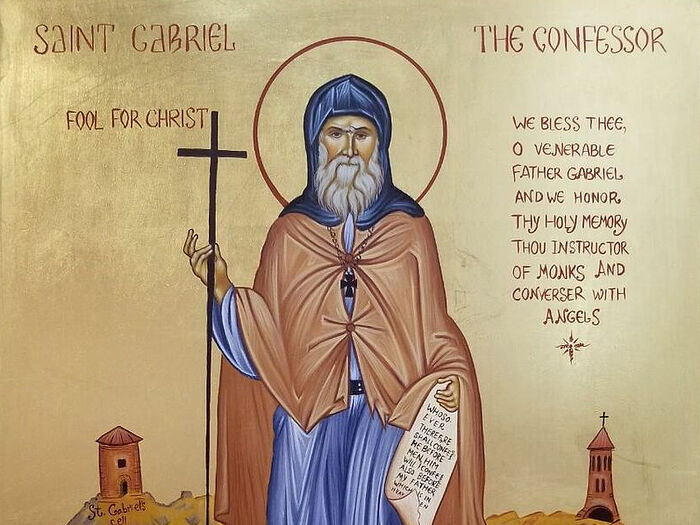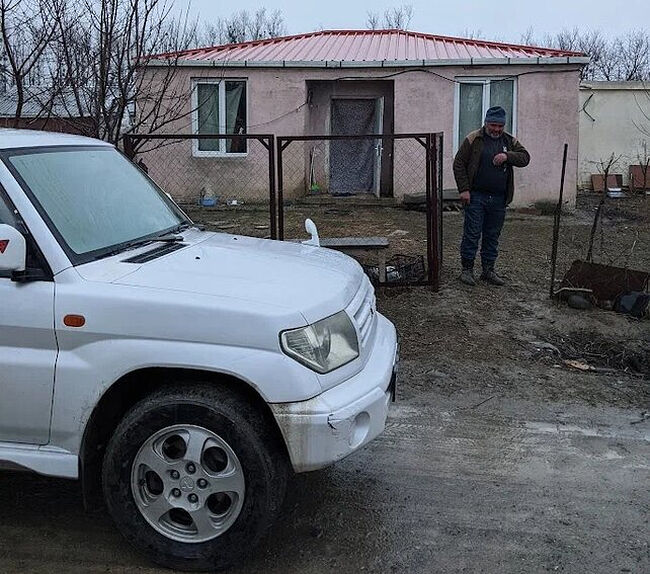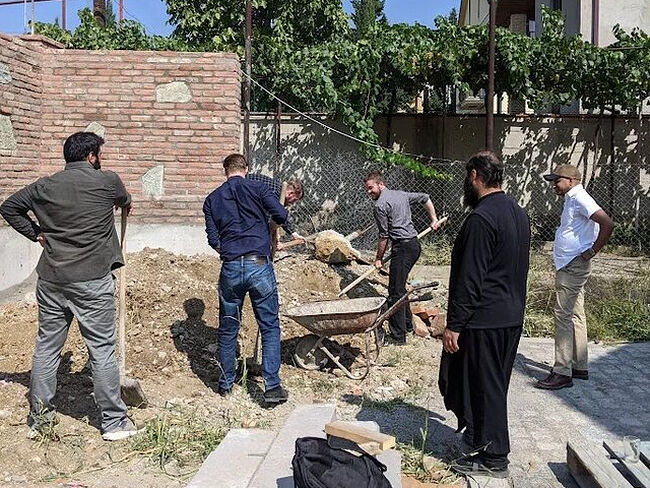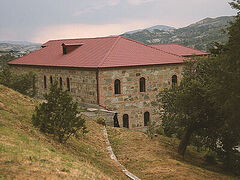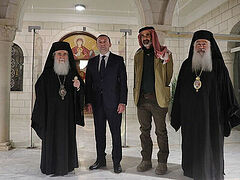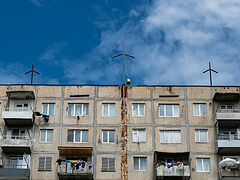Since the publishing of my article from August of 2021, there has been an impressive amount of growth at the St. George Anglophone Community in Tbilisi under the Georgian Patriarchate.1 At the time of the article’s writing, there were only five, mainly older men attending the regular English liturgies at this Georgian Church, but through God's great mercy, a gradual influx of foreigners from across the world has occurred in the past year. Currently, each bi-weekly Saturday English Liturgy is attended by about twenty foreigners, with the total congregation growing to roughly forty. Because of the English liturgy, these Orthodox foreigners travel not only from within Tbilisi but across Georgia from different cities and villages. Of these foreigners, a significant percentage are young and growing families from Canada who immigrated to Orthodox Georgia out of a desire to raise their children in a nation and among a people strongly rooted in the Orthodox faith. For the foreigners residing within Tbilisi, it is common for them to join the wider Georgian language community on Sundays and major feast days, as there are primarily Georgian language parishes. Lastly, the joy of the Gospel reached the hearts of two foreigners (one from Texas; the other from Sweden) who converted from atheism to Orthodoxy at this Church this year.
With this being said, there have been challenges concerning the church building, mainly with the foundation having been damaged due to poor drainage. This threatened the structural integrity of the Church, and was a major source of concern for the priest of this church, Fr. Archil. The poor drainage present around the church also affected the ability of disabled parishioners to move around because of the high amount of mud present, especially after times of heavy rain.
This has long been a problem weighing heavily on the hearts of the parishioners, but through the great mercy of God, this problem has been entirely resolved through a donation from the Holy Orthodox Order of St. George.2 This donation of $15,000 has not only covered the expenses to fix the foundation and add paving stones, but also allowed funded the construction of a needed stone wall around the church property. A significant amount of necessary voluntary labor for these building projects was provided by the Georgian and foreign faithful of the St. George Church, which helped to further unify each community. Since the end of all Covid restrictions within Georgia (along with most of the world), the parish life of the community has continued to grow and prosper, with parishioners frequently meeting one another for pilgrimages around Georgia.
Last month, the parish’s young men took a pilgrimage to the Bolnisi Sioni Cathedral, the oldest extant church building in Georgia. This Cathedral was built 478–493 by the Holy King Vakhtang Gorgasali. It is known for having the oldest Georgian inscriptions carved on its facade and for possessing the oldest historical documents of the Georgian alphabet. One of the inscriptions states the following when translated to English from Old Georgian, “With the mercy of the Holy Trinity, in the thirtieth year of the reign of King Peroz this church was founded, and fifteen years thereafter it was completed. God have mercy upon those who show reverence herein, and upon the builder of this church, David the Bishop, and who pray for you, O God have mercy. Amen.” The crosses carved into the Church have been incorporated into the modern Georgian flag and can be seen in the official seal of the Georgian Patriarchate. However, pilgrimages are not the only activity outside of Liturgy that the community engages in, as they live their Orthodox Christian life.
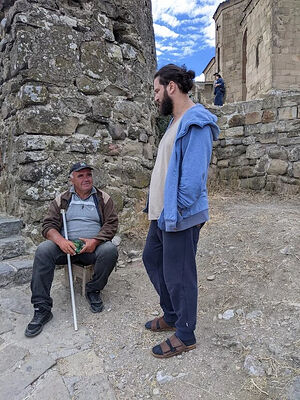 To fulfill the Gospel in not just words but deeds, this community has also done social outreach to the neediest among the Georgian population. One example of recent social outreach can be seen with the parishioners of St. George helping a blind Georgian/Ossetian refugee by the name of Vladimir, who regularly asks for alms in front of Jvari Monastery, because the small Georgian government disability pension is not sufficient for his needs. Vladimir was blinded and his wife killed due to the 2008 Russo-Georgian war, and now he lives alone in a government-provided home in a newly created village for refugees from this conflict. The parishioners of the Church when possible will bring Vladimir food and financial assistance for his utilities, and will help clean his home. Despite his material poverty, Vladimir always is joyful upon meeting his friends from St. George Church and never complains about his situation, but instead thanks God for His many blessings.
To fulfill the Gospel in not just words but deeds, this community has also done social outreach to the neediest among the Georgian population. One example of recent social outreach can be seen with the parishioners of St. George helping a blind Georgian/Ossetian refugee by the name of Vladimir, who regularly asks for alms in front of Jvari Monastery, because the small Georgian government disability pension is not sufficient for his needs. Vladimir was blinded and his wife killed due to the 2008 Russo-Georgian war, and now he lives alone in a government-provided home in a newly created village for refugees from this conflict. The parishioners of the Church when possible will bring Vladimir food and financial assistance for his utilities, and will help clean his home. Despite his material poverty, Vladimir always is joyful upon meeting his friends from St. George Church and never complains about his situation, but instead thanks God for His many blessings.
In conclusion, the grace of God has continued to shine forth from Orthodox Georgia as it has helped to nurture not only the Georgian people but foreigners from around the world who have been adopted into this great spiritual land. While the transition to Georgian life has been difficult for those coming from the materially rich western world, this sacrifice has yielded spiritual benefits a hundredfold. These spiritual fruits have produced good fruit not only for the foreign faithful but also for the nation they call home, and a people they call family.
Georgia will be enlightened in the End Days; this will be revealed not materially but spiritually. Believers from many countries will gather in Georgia. Georgia will be protected by the Holy Virgin as Iberia is the country chosen by the Holy Mother of God as Her lot.
—St. Gabriel Urgebadze

